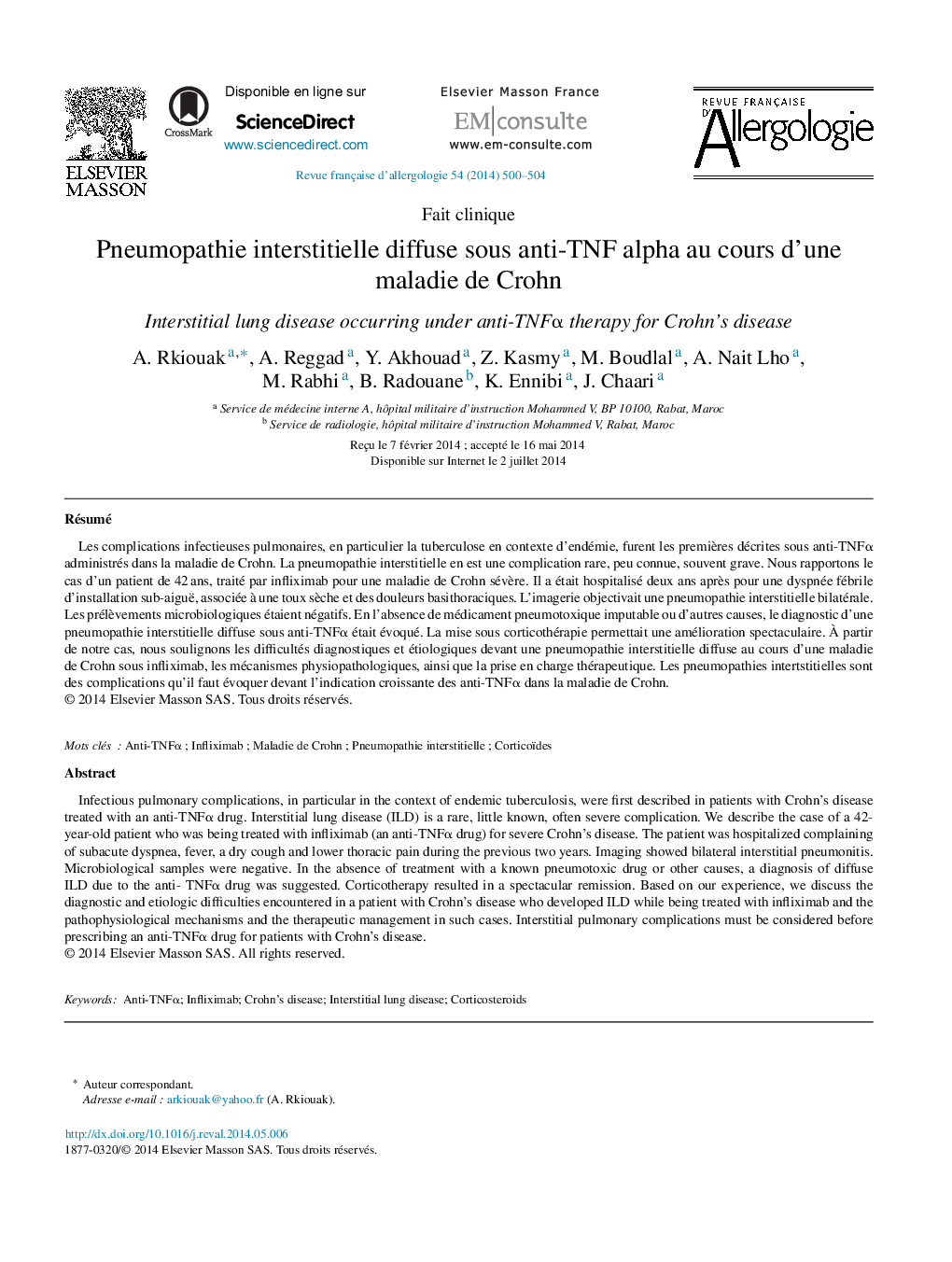| Article ID | Journal | Published Year | Pages | File Type |
|---|---|---|---|---|
| 3385854 | Revue Française d'Allergologie | 2014 | 5 Pages |
RésuméLes complications infectieuses pulmonaires, en particulier la tuberculose en contexte d’endémie, furent les premières décrites sous anti-TNFα administrés dans la maladie de Crohn. La pneumopathie interstitielle en est une complication rare, peu connue, souvent grave. Nous rapportons le cas d’un patient de 42 ans, traité par infliximab pour une maladie de Crohn sévère. Il a était hospitalisé deux ans après pour une dyspnée fébrile d’installation sub-aiguë, associée à une toux sèche et des douleurs basithoraciques. L’imagerie objectivait une pneumopathie interstitielle bilatérale. Les prélèvements microbiologiques étaient négatifs. En l’absence de médicament pneumotoxique imputable ou d’autres causes, le diagnostic d’une pneumopathie interstitielle diffuse sous anti-TNFα était évoqué. La mise sous corticothérapie permettait une amélioration spectaculaire. À partir de notre cas, nous soulignons les difficultés diagnostiques et étiologiques devant une pneumopathie interstitielle diffuse au cours d’une maladie de Crohn sous infliximab, les mécanismes physiopathologiques, ainsi que la prise en charge thérapeutique. Les pneumopathies intertstitielles sont des complications qu’il faut évoquer devant l’indication croissante des anti-TNFα dans la maladie de Crohn.
Infectious pulmonary complications, in particular in the context of endemic tuberculosis, were first described in patients with Crohn's disease treated with an anti-TNFα drug. Interstitial lung disease (ILD) is a rare, little known, often severe complication. We describe the case of a 42-year-old patient who was being treated with infliximab (an anti-TNFα drug) for severe Crohn's disease. The patient was hospitalized complaining of subacute dyspnea, fever, a dry cough and lower thoracic pain during the previous two years. Imaging showed bilateral interstitial pneumonitis. Microbiological samples were negative. In the absence of treatment with a known pneumotoxic drug or other causes, a diagnosis of diffuse ILD due to the anti- TNFα drug was suggested. Corticotherapy resulted in a spectacular remission. Based on our experience, we discuss the diagnostic and etiologic difficulties encountered in a patient with Crohn's disease who developed ILD while being treated with infliximab and the pathophysiological mechanisms and the therapeutic management in such cases. Interstitial pulmonary complications must be considered before prescribing an anti-TNFα drug for patients with Crohn's disease.
